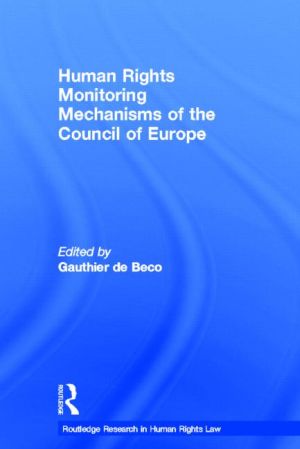
This book explores the human rights monitoring mechanisms of the Council of Europe: the Commissioner for Human Rights, the European Committee for the Prevention of Torture and Inhuman or Degrading Treatment or Punishment, the European Committee of Social Rights, the Advisory Committee on the Framework Convention for the Protection of National Minorities, the Committee of Experts of the European Charter for Regional or Minority Languages, the European Commission against Racism and Intolerance.
Unlike the European Court of Human Rights, these mechanisms do not make binding decisions on human rights violations, having little or no quasi-judicial powers. They are non-judicial mechanisms which focus on the prevention of human rights violations, seeking to establish a permanent dialogue with governments to encourage them to better implement human rights. They function principally through the use of national reports, on which basis they make recommendations, and may also visit or question states directly. The book will look at each mechanism in turn and consider a number of issues including: at the role and procedures; its effectiveness in terms of monitoring and ensuring its findings are implemented; its level of cooperation with other international actors including other organs of the Council of Europe, UN and EU bodies, NGOs and national human rights institutions and ombudsmen; its relationship with the European Court of Human Rights; and whether human rights indicators would be useful in improving its monitoring. Each chapter has been written by an expert in the field. The introduction to the volume outlines the common features and purposes of these mechanisms as well as key questions to be addressed in the following chapters, while the conclusion provides an evaluation of their effectiveness and consider future perspectives.